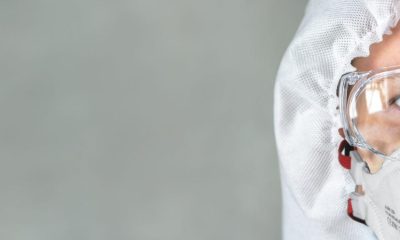EU
#העאַלטה: אי.יו. אַדווערטייזמאַנט רעוויזיע Offers אַמאָל-אין-אַ-יאָרצענדלינג געלעגנהייט צו באַשיצן קינדער
SHARE:


For health organizations the ongoing revision of the AVMSD (EU Audio-visual Media Services Directive), proposed by the European Commission in May 2016, offers a once-in-a-decade opportunity to protect children from commercial communications on alcoholic beverages, and products high in fat, sugar and salt, writes Robert Delis of the British Medical Association (BMA).
Currently, both the European Parliament and EU Council of Ministers are in the process of drafting their positions on the Commission’s proposal before a series of trilogue meetings between the 3 institutions take place in May/June. The EP’s CULT Committee (Culture and Education), which is leading scrutiny of the Commission's proposal, published its draft report in September 2016 and after postponing several times the final vote on the report, due to extensive industry lobbying, finally took place on 25 April.
Looking at the current debate at EU level, the EU institutions support self and co-regulation despite the growing body of research that shows the ineffectiveness of such an approach in protecting children and young people from the marketing of the aforementioned food and drinks. The adopted EP’s CULT report maintains voluntary self and co-regulation for advertising of alcohol and food high in fat, sugar and salt and the wording is not strict enough to protect children and minors which allows the industry wide scope for interpretation and using loopholes for advertising their products. Despite many MEPs from all parties who have repeatedly voiced their concerns about the rising levels of childhood overweight and obesity and the alarming levels of youth binge drinking that persist in Europe today, the leading CULT Committee repeatedly ignored the public health angle in its report and even weakened the Commission’s proposal on some areas. That message has been voiced by the collaboration of Brussels-based public health organisations of which the BMA is part of, however the CULT Committee ignored it and refused even to meet and discussed the issues.
The draft report as amended was adopted, with 17 votes in favour, nine against and four abstentions. MEPs also adopted the mandate to enter into negotiations with the EU Council of Ministers and the Commission with 18 votes in favour, nine votes against andthree3 abstentions. The EU Council of Ministers plans to adopt its general approach on 23 May, so negotiations at inter-institutional level could start still under the Maltese Presidency.
According to the EU Pledge, a voluntary scheme that companies such as Nestlé and Ferrero have signed up-to, companies won’t advertise to children. The Commission thinks that voluntary pledges can work as long as they are sufficiently monitored and go hand in hand with credible sanctions. The 2015 BMA board of science report, ‘Food for thought: promoting healthy diets among children and young people’, highlights how a range of consumer marketing tactics directly and indirectly impact on children and young people’s knowledge and dietary patterns, and has been vital in our lobbying of those EU officials and MEPs involved in the revision.
The proposed revision of product placement and sponsorship regulations is of some concern. Product placement erodes the distinction between programme and commercial content and should not be allowed for either alcohol or foods high in sugar, fats or salt. The Commission’s proposal to liberalize product placement and the draft EP CULT report’s endorsement of this approach undermine the fundamental principle that commercial communications should be readily recognisable. The BMA is working with European partners to either retain the existing general prohibition on product placement or to exclude alcohol and foods high in sugar, fats and salt from product placement alongside tobacco and medicinal products. We are also working to secure a similar exclusion for sponsorship.
As there are no current EU regulations regarding online advertising/social media, there is an urgent need to develop specific legislative measures to prevent the marketing of alcohol, unhealthy food and drinks to children. The current revision provides a perfect opportunity for such action. Over the course of childhood, children spend less time in school than in front of a TV set and/or tablets and smartphones. Consequently, an average seven year-old will have already watched screen media for more than one full year and by age 18 the average young European will have spent a full four years in front of a screen.
On 1 December 2016, the BMA jointly hosted – with other civil society organizations – an event in the Parliament to promote our views that the revised Directive should: minimize the exposure of minors to advertising alcohol and food high in sugar, fats, trans fats, salt and sodium; exclude alcohol and unhealthy food from product placement and sponsorship; ensure member states can limit broadcasts from other countries on public health grounds. In addition, the BMA has also co-signed a letter to S&D group and to CULT MEPs with the messages repeated ad nauseam.
As this legislation could be finalised before the UK’s formal departure (mid 2019 at the earliest) from the EU and become applicable across the country, it’s imperative that we continue to work to ensure that such legislation reflects the concerns of BMA members and not simply those of industry.
שער דעם אַרטיקל:
-

 טאַביקקסנומקס טעג צוריק
טאַביקקסנומקס טעג צוריקדער באַשטימען פון סיגאַרעטטעס: ווי דער שלאַכט צו גיין רויך-פריי איז וואַן
-

 אַזערביידזשאַןקסנומקס טעג צוריק
אַזערביידזשאַןקסנומקס טעג צוריקאַזערביידזשאַן: אַ שליסל שפּילער אין אייראָפּע ס ענערגיע זיכערהייט
-

 טשיינאַ-אי.יו.קסנומקס טעג צוריק
טשיינאַ-אי.יו.קסנומקס טעג צוריקמיטס וועגן טשיינאַ און זייַן טעכנאָלאָגיע סאַפּלייערז. די אי.יו. באַריכט איר זאָל לייענען.
-

 קאַזאַקסטאַןקסנומקס טעג צוריק
קאַזאַקסטאַןקסנומקס טעג צוריקקאַזאַכסטאַן, טשיינאַ איז באַשטימט צו פארשטארקן אַלליעד באַציונגען























